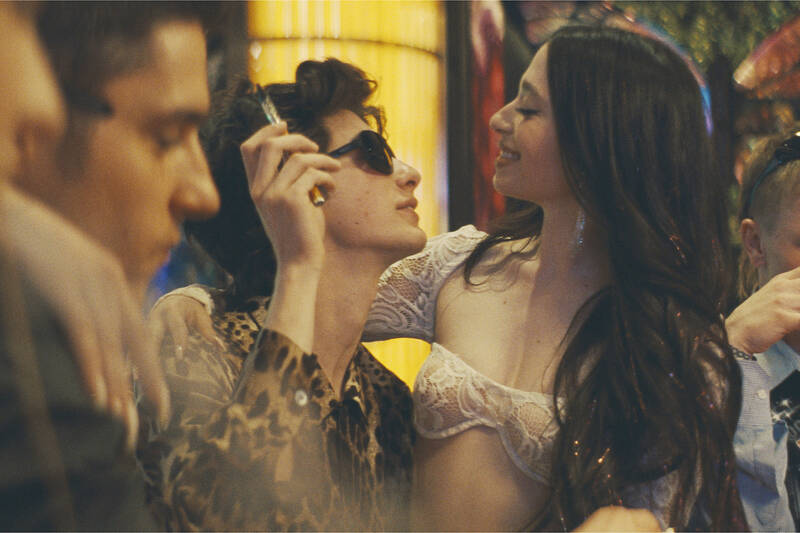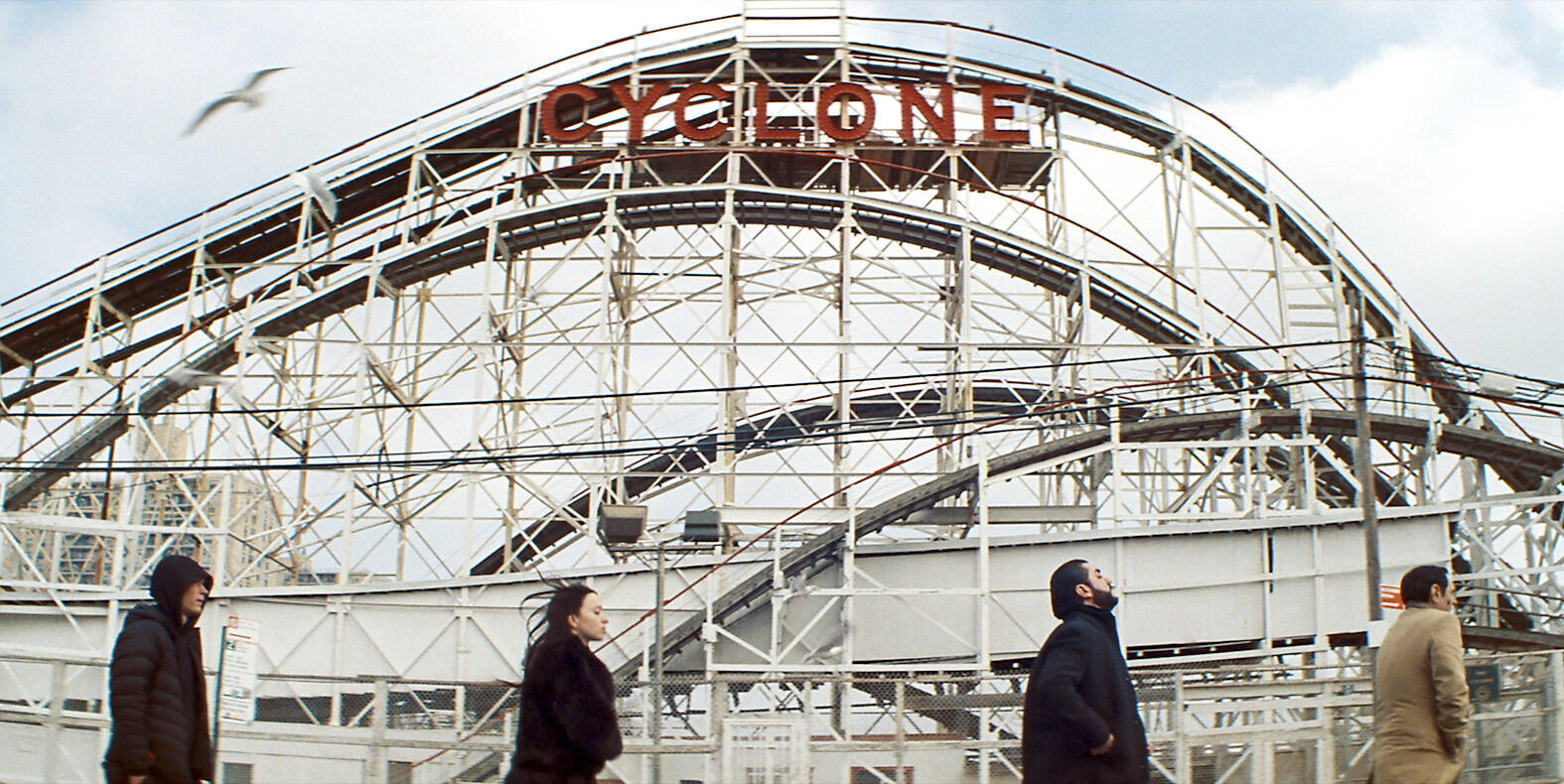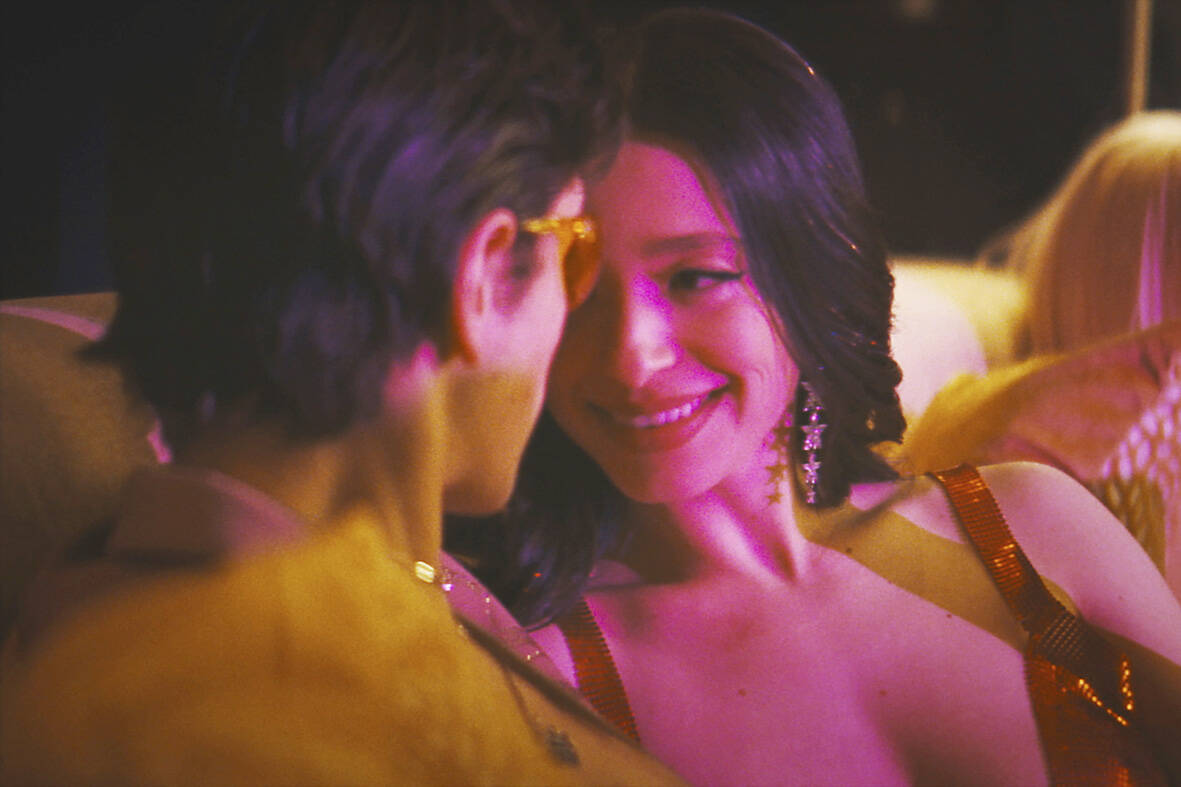Things are going a little too well in Anora until a call from Russia and a knock at the door changes the trajectory of the movie. This extended sequence, deeply stressful and riotously funny at the same time, is reason enough to see Sean Baker’s Palme d’Or winner. But somehow the journey that follows only gets better and more interesting.
Anora is a fairy tale that spoils. An exotic dancer from Brighton Beach, Anora (Mikey Madison), or Ani, as she likes to be called, gets paired one evening with a young man, Ivan (Mark Eydelshteyn), who requests a Russian speaker. She can speak a little and understand everything and they quickly hit it off, embarking on a whirlwind ride together. First, Ivan hires her by the hour, then for the week for which she commands a cool US$15,000 (accounting for inflation that’s about double what Vivian got in Pretty Woman. Edward may have been a successful corporate raider, but he didn’t have oligarch money.) Ivan even tells Ani he would have paid US$30,000.
For as crass and ugly and reckless as it all is, it’s also something of a joy bomb to watch Ani and Ivan indulge in the youthful hedonism of unlimited funds — there’s drugs, champagne, private jets, luxury suites and, perhaps most importantly, they’re having fun. When he proposes and they marry on an impromptu trip to Las Vegas, you almost believe it could work. Then the foundation collapses: Ivan’s parents find out and the guys who were supposed to be keeping track of the wayward kid, presumably in the US to study, are sent off to fix it, and fast. They have less than 24 hours before Ivan’s parents land in New York and Ivan has gone missing. Suddenly, Anora with its ticking clock, missing kid, anxious goons and determined dancer, turns into a white-knuckle ride that gives Uncut Gems a run for its money.

Photo: AP
Prior to Anora, I’m not sure that I was especially concerned with the odyssey of a streetwise exotic dancer who, for a fleeting moment, has everything money can buy. Now I can’t imagine not having taken the trip, and meeting the colorful ensemble: Anora, Ivan (who is being called the Russian Timothee Chalamet), Igor (Yura Borisov) the thuggish-seeming muscle with a soft voice, kind eyes and a heart of gold, Toros (Karren Karagulian), the very stressed Armenian who was supposed to keep Ivan in line, and Garnick (Vache Tovmasyan), Toros’ in-over-his-head brother hoping to make a good impression on Ivan’s family.
They aren’t just bad-guy types, either: They are all fascinating and empathetic in their own right, just trying to do a job for their powerful employers. By the end of one very long night with this motley crew, you might wonder if you’re even rooting for Ani to get what she says she wants anymore.
As a filmmaker, Baker has a particular knack for transporting moviegoers to places they’d not ordinarily go, with characters they’d similarly likely never encounter. Whether it’s a few transgender sex workers walking down a less-than-picturesque stretch of Santa Monica Boulevard one Christmas Eve, a single mom and her six-year-old living in a downtrodden motel right outside the “happiest place on earth,” or a washed-up porn star/conman who goes home to Texas, he finds wonder, beauty, dark humor and truth in the ugly, the unseen and the unheard. The milieus are gritty, not something anyone would be bragging about on Instagram, and yet feel endlessly more authentic than some other filmmakers indulging in poverty porn.

Photo: AP
The biggest handicap of Anora is perhaps the hurdle of preconceptions. It seems almost too ‘90s for a young actor’s big, serious, awards-buzzy breakthrough to come from getting naked and dancing on a pole. And yet in the hands of Baker and Madison, it works: Anora both embraces and transcends the cliches. It’s not trying to pretend that it’s not exploitative on some level; that might even be the point. And anyway, you might be surprised just how quickly you commit to this once-in-a-lifetime ride.

Photo: AP

Behind a car repair business on a nondescript Thai street are the cherished pets of a rising TikTok animal influencer: two lions and a 200-kilogram lion-tiger hybrid called “Big George.” Lion ownership is legal in Thailand, and Tharnuwarht Plengkemratch is an enthusiastic advocate, posting updates on his feline companions to nearly three million followers. “They’re playful and affectionate, just like dogs or cats,” he said from inside their cage complex at his home in the northern city of Chiang Mai. Thailand’s captive lion population has exploded in recent years, with nearly 500 registered in zoos, breeding farms, petting cafes and homes. Experts warn the

The unexpected collapse of the recall campaigns is being viewed through many lenses, most of them skewed and self-absorbed. The international media unsurprisingly focuses on what they perceive as the message that Taiwanese voters were sending in the failure of the mass recall, especially to China, the US and to friendly Western nations. This made some sense prior to early last month. One of the main arguments used by recall campaigners for recalling Chinese Nationalist Party (KMT) lawmakers was that they were too pro-China, and by extension not to be trusted with defending the nation. Also by extension, that argument could be

Aug. 4 to Aug. 10 When Coca-Cola finally pushed its way into Taiwan’s market in 1968, it allegedly vowed to wipe out its major domestic rival Hey Song within five years. But Hey Song, which began as a manual operation in a family cow shed in 1925, had proven its resilience, surviving numerous setbacks — including the loss of autonomy and nearly all its assets due to the Japanese colonial government’s wartime economic policy. By the 1960s, Hey Song had risen to the top of Taiwan’s beverage industry. This success was driven not only by president Chang Wen-chi’s

Last week, on the heels of the recall election that turned out so badly for Taiwan, came the news that US President Donald Trump had blocked the transit of President William Lai (賴清德) through the US on his way to Latin America. A few days later the international media reported that in June a scheduled visit by Minister of National Defense Wellington Koo (顧立雄) for high level meetings was canceled by the US after China’s President Xi Jinping (習近平) asked Trump to curb US engagement with Taiwan during a June phone call. The cancellation of Lai’s transit was a gaudy